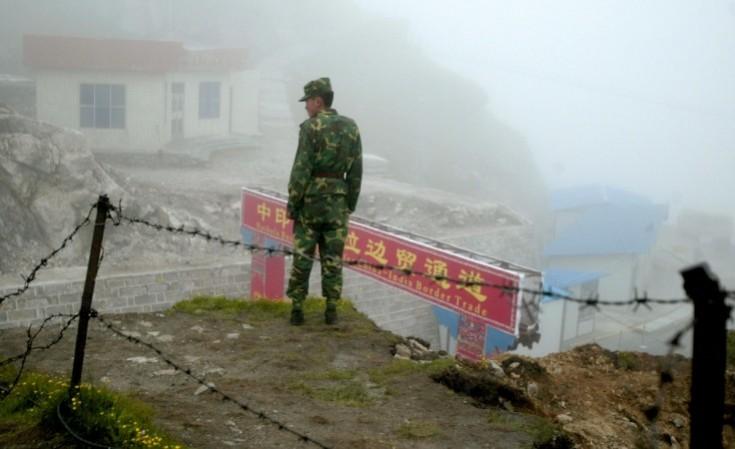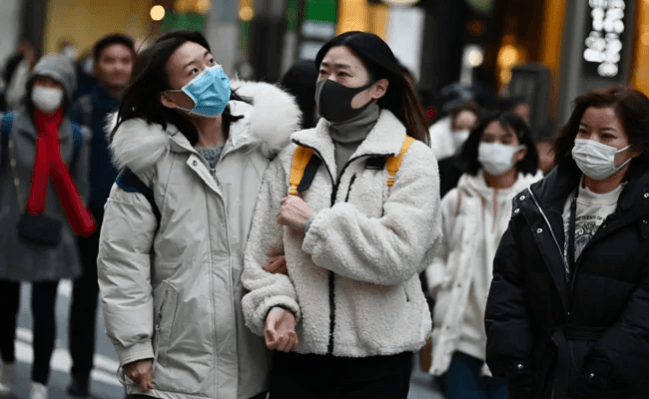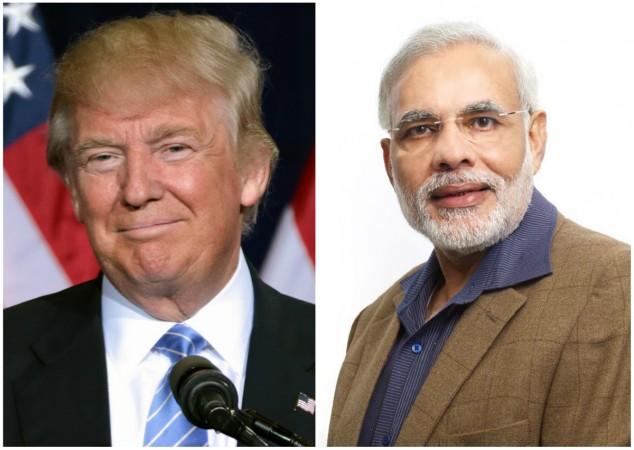It seems China is keen on promoting closer ties with India in recent years and is looking at the nation as an ally. What could be the reason for this sudden shift in approach? Is Beijing feeling the threat of the India-US alliance as part of Washington's Indo-Pacific Strategy?

Celebrating the 70th anniversary of Indo-China diplomatic relations, both countries have announced 70 events throughout the year, which we doubt would happen amidst the Covid-19 outbreak. On this occasion, the Chinese Ambassador lit the candle at the event and tweeted, "We are standing together through thick and thin."
What could be the reason for this sudden realignment? A rare phenomenon according to the Chinese playbook - a formal rapprochement on the surface of it, while breeding distrust and hedging in private - such double standards in diplomatic relations - holding suspicion about India's ambitious intents and growth plans. What will be the foreseeable future for the countries in proximity?
China taking steps to get closer, besides regional proximity
Beijing's vision for Asia is that of a hierarchical structure with China at the top holding absolute supremacy and India standing at no equals. However, India's historical influence in South Asia and its potential competence as a regional superpower is making China reconsider its alignment with India by following a balancing pattern. China wants to stabilise relationships with India because it wants to avoid multi-directional focus - one confronting the US and the other to claim its position of leadership in South Asia, which seems a bleak prospect with a strong contender like India holding strong potential and regional power in Asia.
Post the Doklam standoff in 2017, the Indo-China border has been incident-free for the last few months. Plus China has offered all assistance to India, including the construction of a hospital to battle coronavirus. The two major companies acting on the directions of Beijing - Alibaba has gifted PPEs - masks, ventilators and other protective gears to India. On arrival of the latest in India, the Chinese Ambassador tweeted, "The third batch of donation of test kits from Alibaba Foundations has reached Delhi tonight. With solidarity between the Chinese and Indian people, we can overcome the challenge of the Covid-19 epidemic." TikTok went ahead to donate medical equipment worth Rs 1bn (US$18million).
Why is China displaying sudden affection towards India?
Perhaps, the answer lies in detail. While India abided by the WHO guidelines and ICMR directives to contain the rapid spread of Covid-19, it has not blamed China thus far for its failure or delay in sharing inputs to prevent the spread of the deadly virus. Most nations, primarily the US, UK, Europe, and others have been blaming China for slack in immediate preventative measures to curb and contain the virus within the country.
In the current scenario, China anticipates global backlash when things settle down and hence is keen on developing allies to cushion itself internationally. Hiding true casualty figures and imposing inhuman lockdowns have always been a part of a Chinese strategy to maintain its national pride. The country even insisted that WHO changes the name of the virus to show no links to Chinese.

WHO on its part, is in all praise for China for effective handling of the crisis despite being aware of its shortcomings. Taiwan highlighted WHO bias and failure as an organisation, while Japan went ahead to call WHO as CHO (China Health Organisation). The Trump administration has called WHO "China centric" and is deliberating moves to punish the organisation in the wake of the life threatening impact of the coronavirus pandemic. The punishment will include cutting off U.S. funding support and trying to create an alternative institution. Nations are now together blaming WHO for supporting China and are considering disbanding or reconstituting the organisation completely, if it needs to stay relevant.
Trump alleged and asserted to the WHO in his recent announcement saying, "Dr Tedros Adhanom Ghebreyesus' apparent unwillingness to hold the Chinese Communist Party to even the minimum standard of global health and transparency hindered the world's ability to blunt the spread of this pandemic. It is completely unacceptable that the world's global health organization has become a political puppet of the Chinese government. An independent investigation into the WHO's handling of the COVID-19 response is imperative."
The Chinese narrative in its defence says that coronavirus was intentionally released by the US in Wuhan to embarrass the government and then sold to people across geographies to become a global pandemic, thus pushing economies to severe crisis. China blames the US, the UK, and European countries for their own failures. This will never be accepted by the international organisations and communities at large.
As research on the virus progresses and its possible points of release emerge in the days to come, the delay by China in sharing the crucial impact of the virus with the rest of the world will soon come to fore. Then it would be difficult for China alone to battle global anger and handle the backlash. Hence, it's looking up to India for support as a global peacemaker and ally in times of need.
Threatened by India-US alliance: Celebrating 70 years of Indo-China relations
Chinese President Xi Jinping in a message to president Ramnath Kovind on the occasion of 70th anniversary celebrations said, "A stronger China-India relationship will bring more benefits to our two countries and peoples and contribute more positive energy to Asia and the world at large. A relationship defined by friendship, cooperation and mutual benefit will serve the fundamental interests of both countries. China is ready to join hands with India to build on the momentum created by this 70th anniversary to work for new progress in our strategic and cooperative partnership."
Conflicting demands, ideas and asymmetrical patterns of relationships based on distrust and hostility run deep between both nations. This makes it extremely tough for India-China to forge ties based on trust. Also, the emergence of an India-U.S. alliance and defence cooperation, reluctance by the Modi government to embrace the Indo-Pacific concept, and emphasis on "strategic autonomy" is giving Beijing nightmares of confronting the Indian military along its southern border and in the Indian Ocean, and the American military at sea.

The cooperation with the US will only diminish China's soft power and strategic influence in South Asia, while hindering China's power projection capability in the Indian ocean and threatening energy supply to China from the Middle East. The U.S endorsing India's strong leadership potential and status in Asia as an emerging superpower is encouraging other nations across the globe to forge strategic relationships with Delhi, thus threatening China's predominance in Asia.
India held no place according to China's vision in the regional order, but it was the US that offered India a strategic position in the Indo-Pacific strategy. Understanding India's importance and its relationships with the US, China was compelled to alter its outlook and approach towards India. Beijing is now looking at opportunities to appease New Delhi.
India-China in proximity: What will happen when the lockdown opens?
Raging spread of the coronavirus pandemic has disrupted global supply chains, to impact trade between countries and demand-supply of commodities. According to official data from China, the trade between the two countries has witnessed a decline by 12.4% year-on-year in the months of January and February.

At a time when the coronavirus was gaining grip in India and China, the Chinese exports to India plummeted by 12.6% year-on-year during the period to 67.1 billion yuan, while India also saw a significant drop by 11.6% to 18 billion yuan. The domestic fisheries exports to China also saw a dip of more than $171,000. With India-China holding close proximity, what will happen when the lockdown opens?
The slowdown in Chinese economy, being the epicentre of the coronavirus epidemic, is an opportunity for Indian exporters and manufacturers to beef up their production capacities, while businesses can look at innovation of new products and services to plug the global supply gaps.
Post the covid-19 breakouts, many international firms are reconsidering their supply chain investments in Asia and looking at India for diversification. More countries are posing restrictions on trade and travel with and through China of products exported from the market to foreign nations. As a result, Chinese trade has been negatively impacted since the beginning of 2020.
Reduce overdependence: The moment of self-realisation for global economies
In the wake of the current crisis scenario, India needs to be extremely careful about import of farm, food, electronic devices, medical supplies and marine products from coronavirus-hit Chinese factories. India is dependent on China for API imports, while national strategies to begin API production in India continues to remain only on paper. These times call for thinking through economic overdependence on other nations for supply of raw materials and chemicals such as 60% of the leather industry in India is dependent on China for tiny locks, PVC soles, D-rings, linings and zippers.

Also coronavirus has led to a big fall in the world crude oil prices and few oil-exporting countries are keen to trade with China at the moment. India's dependence on China for API import raises a national security concern for the pharma and drug industry in India. When will Make in India on papers be implemented and put to practice to reduce reliance on foreign nations? When the travel ban is uplifted would tourists from foreign nations including China be allowed to enter India then? What if the coronavirus is brought along with them and spreads again?
As lockdown in Wuhan, capital of central Hubei province comes to an end and people are allowed to travel outside the country, new imported cases in the northern province of Heilongjiang emerge to rise upto count of 25, fuelled by a continued influx of infected travellers arriving from Russia. Rather holding a myopic viewpoint blaming China for the spurt of the pandemic, it has brought the world to a moment of self-realisation - to understand international overdependence on China for procuring medical supplies and equipment.
The political clout of China has been such that neither WHO or the UN had a say on ensuring transparency in the initial phase of outbreak from Beijing nor about deciding timelines and implementing plan of action next. This emergency situation led all national governments to fend for themselves, since there was no international arbiter to exert influence on health or the supply side of China.
Developed nations including the US and developing economies are realising that overdependence on China has crippled their ability to fight with the coronavirus crisis independently or even foresee a danger coming in the recent past. It is important for India and other countries to step up their domestic manufacturing capabilities and explore politically viable alternate supply chains, not as back up but as a critical necessity for the times to come.








